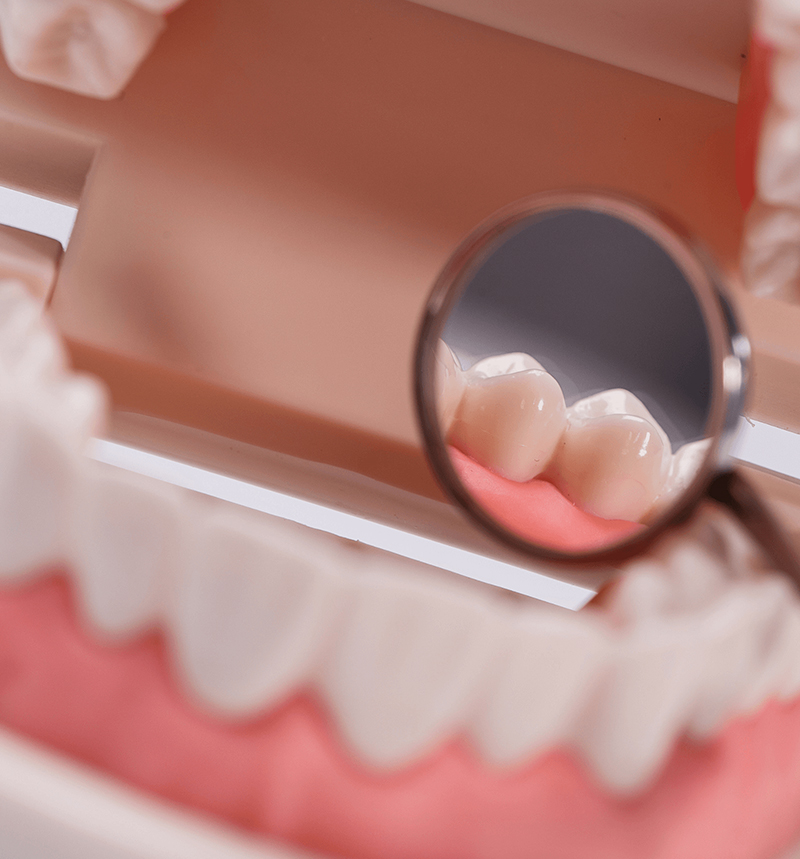Full mouth rehabilitation, also known as full mouth reconstruction or restoration, is a comprehensive treatment plan designed to restore the function, health, and appearance of your entire mouth. This involves rebuilding or replacing all of the teeth in your mouth through a combination of dental procedures tailored to address your specific needs.
Full mouth rehabilitation is ideal for individuals with:
Restored Function: Improves the ability to chew, speak, and eat comfortably, enhancing your overall quality of life.

Aesthetic Improvement: Enhances the appearance of your smile, boosting your self-esteem and confidence.
Comprehensive Care: Addresses all dental issues simultaneously, providing a cohesive and integrated approach to oral health.
Long-Term Oral Health: Prevents further dental problems by restoring proper bite alignment and oral function.
Dental Crowns: Caps placed over damaged or decayed teeth to restore their shape, size, and strength.
Dental Bridges: Fixed prosthetics used to replace one or more missing teeth by anchoring to adjacent teeth.
Dental Implants: Titanium posts surgically placed into the jawbone to serve as artificial tooth roots for crowns, bridges, or dentures.
Porcelain Veneers: Thin shells of porcelain bonded to the front surfaces of teeth to improve their appearance.
Inlays and Onlays: Custom-made restorations used to repair damaged or decayed teeth.
Gum Treatment: Procedures to treat periodontal disease and ensure healthy gums.
Orthodontics: Braces or clear aligners to correct misaligned teeth and bite issues.
Practice Good Oral Hygiene: Brush twice daily, floss regularly, and use an antiseptic mouthwash.
Regular Dental Check-ups: Schedule routine visits with your dentist to monitor the health of your restorations and address any issues promptly.
Avoid Damaging Habits: Avoid chewing on hard objects, grinding your teeth, and using your teeth as tools.
Healthy Diet: Eat a balanced diet to support your oral health and avoid sugary or acidic foods and drinks.
A: The duration varies depending on the complexity of the case and the specific procedures involved. It can take several months to over a year.
A: Your dentist will use local anesthesia and sedation options to ensure your comfort during procedures. Some discomfort is normal during recovery, but it is typically manageable with prescribed medications.
A: The cost varies widely based on the treatments needed. Your dentist will provide a detailed estimate during your consultation.
A: Yes, the goal is to restore your ability to eat comfortably. Initially, you may need to adjust your diet during healing periods, but eventually, you should be able to enjoy a normal diet.
A: Absolutely. Modern dental restorations are designed to look natural and blend seamlessly with your existing teeth, enhancing your smile’s appearance.